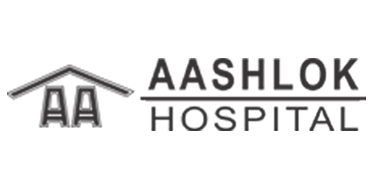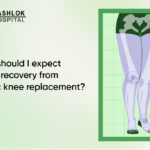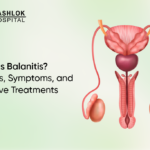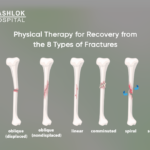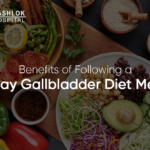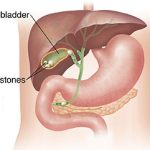Foods to Eat and Avoid in Your 7-Day Gallbladder Diet Menu
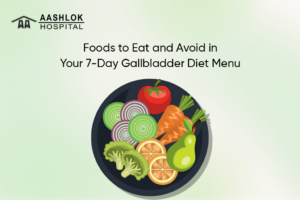
The goal of the gallbladder diet meal plan is to lessen pain and discomfort in the abdomen, which are the key signs
of gallbladder inflammation or gallbladder stones.
Because consuming fried or high-fat meals tends to exacerbate these symptoms, it is best to cut back on or avoid
them entirely during flare-ups. This article delves into a 7 day gallbladder diet menu for all those who aim to
improve their gallbladder health.
Table of content :
Role of diet in gallbladder health
General Dietary Guidelines for Good Gallbladder Health
- Focus on High-Fiber Foods
- Choose Monounsaturated Fats
- Opt for Lean Proteins
- Practice Portion Control
- Include Antioxidant-Rich Foods
Foods to Eat in a Gallbladder-Friendly Diet
Foods to Avoid for Gallbladder Health
Aashlok Hospital serves as your focal point for communion advice, treatments, and expert suggestions aimed at
promoting a healthy lifestyle and aiding digestive health. Whether you’re seeking dietary guidance, natural
remedies, or expert consultations, Aashlok Hospital is your trusted partner in achieving better gallbladder health.
Also Read : 7-Day Gallbladder Diet Menu: Benefits & Guide
Role of diet in gallbladder health
The diet holds the keystone for good gallbladder health and the management of gallbladder disorders like gallstones,
inflammation, and bile duct problems. The gallbladder is an important partner of the digestive system, and its main
function is to store and liberate bile for digesting fats. Drinking a lot of water and preventing the trigger foods
such as fried foods make for the good health of the gallbladder. A carefully framed gallbladder diet menu plan could
eliminate these troublesome symptoms most of the time and preclude complications so that the gallbladder functions
correctly.
Also Read : Exercise for Gall Bladder Stone: Complete Pain Relief Guide
General Dietary Guidelines for Good Gallbladder Health
Considering these dietary guidelines while following the 7 day gallbladder diet menu can help prevent gallbladder
issues and support optimal function:
Focus on High-Fiber Foods
Fibrin strips decrease the production of cholesterol in bile, considering gallstones are formed from cholesterol.
They regulate the natural smooth flow with the least interference of cholesterol accumulations.
Choose Monounsaturated Fats
Use modest amounts of healthy fats like olive oil, avocados, and omega-3-rich foods, for instance, salmon, flaxseeds,
and walnuts. These fats will smoothen the flow of bile, and not stress the gallbladder too much.
Opt for Lean Proteins
Add as many protein sources as you can; they are least likely to trigger gallbladder discomfort. They contain no fat
content and stimulate the natural digestive tract to perform digestion without needing much bile participation.
Practice Portion Control
Eating smaller meals more frequently prevents bile buildup and stress on your gallbladder. Practice fasting methods
like intermittent fasting.
Include Antioxidant-Rich Foods
Antioxidant-rich food in the diet is crucial for gallbladder health since antioxidants prevent oxidative stress. They
also neutralize free radicals, unstable molecules that can damage other cells, including those in the gallbladder
lining.
Also Read : FIVE SAFE TIPS FOR THE PREVENTION OF GALLSTONE
Foods to Eat in a Gallbladder-Friendly Diet
A 7 day gallbladder diet menu should include gallbladder-friendly foods. Now you must wonder what are the best foods
to consume during a diet. Here are some of the best recommendations from our expert gastroenterologists:
Fish and fish oil-rich recipes
People who have a diet with large quantities of fish oil have a lower probability of developing gallstones than
compared to people who do not consume a lot of fish oil. This is because omega-3 polyunsaturated fatty acids may
help protect against the development of gallstones. While oily fish generally contain more omega-3s than white fish,
white fish, however, because of its low-fat content, white fish may be better for the gallbladder.
Foods rich in vitamin C
Vitamin C, being a powerful antioxidant, protects the gallbladder against oxidative stress and inflammation by
assisting in preserving the integrity of the gallbladder lining. Include more fresh fruits and vegetables such as
oranges, strawberries, lemon, peppers, kiwi, and broccoli in your diet to protect your gallbladder and achieve good
digestive health.
Vegetables high in protein
Proteins are essential for the repair and growth of body tissues. Plant-based diets rich in protein help mitigate
oxidative stress, supporting gallbladder function and reducing the likelihood of gallstone formation. So, here are
some veggies that you can incorporate into your daily diet:
- Spinach
- Broccoli
- Brussels Sprouts
- Asparagus
- Beans: Kidney, black, and fava beans
- Peas: Chickpeas, split peas, and black-eyed peas
- Lentils
Also Read : Gallstones- a stone to be removed from your body
Foods to Avoid for Gallbladder Health
What are the best foods to eat when you have gallstones? You must steer clear of some of the high fat-containing
foods when following this 7 day gallbladder diet menu as they can trigger gallbladder and digestive problems.
Foods with highly refined sugars
Refined sugars increase cholesterol content in bile, hence making the formation of gallstones more likely. This
imbalance causes the disruption of bile’s normal flow and function, which are essential for proper fat digestion.
They also trigger spikes in insulin levels, which could aggravate gallbladder problems.
Foods high in fructose
Excessive fructose consumption leads to obesity because it induces the accumulation of visceral fat, which exerts
pressure on other abdominal organs, including the gallbladder, thereby impairing its function. Fructose is also
metabolized differently from other sugars, leading to increased fat production in the liver and, consequently, an
increase in bile imbalance and gallstone risk.
Refined carbohydrates
White bread and ultra-processed cereals are a threat to your gallbladder by aiding the formation of gallstone
crystallization. Their refined nature helps the fat globules accumulate in the digestive tract and eventually causes
gallbladder malfunctions.
Also Read : 5 Foods to Avoid in Gallstones
Gallbladder Diet Chart
Here is an average Gallbladder diet meal plan recommended by our experienced gastroenterologists for anyone trying to
maintain good gallbladder health. In case you want a personally curated diet menu plan catering to your biological
needs, contact Aashlok Hospital.
| Breakfast | |
| Fruit | All but Avocado |
| Cereal | Any |
| Egg | Egg white allowed only |
| Beverage | Light tea or coffee or skim milk |
| Lunch | ||
| Soup | No creamy or fatty soups | |
| Vegetable | Cooked vegetables allowed to be eaten: Carrots, string beans, peas, beets, spinach | |
| Vegetables that should not be eaten cooked or uncooked: Cucumbers, corn, radishes, sauerkraut, onions | ||
| Beverage | Light tea or skim milk | |
| Dinner | |
| Meat | 1 serving of any lean meat, chicken, or turkey.
No fried or fatty meats allowed. Meat may be cooked, broiled or baked. No stews or gravies permitted. No duck or goose allowed. |
| Salad | Lettuce and tomato salad without dressing |
| Fish | White fish like Halibut, Sea bass, Sea bream, Turbot |
| No fried fish | |
| No canned fish, such as salmon, tuna, etc., except water packed | |
| Cheese | Skim milk or cottage cheese |
| Beverage | Light tea, skim milk |
| Dessert | Choice of fruits, jell-o or gelatin dessert (without cream), angel food cake |
Conclusion
In conclusion, following a properly formulated 7 day gallbladder diet menu can be a significant aid in treating
gallbladder function by reducing inflammation, promoting better bile flow, and minimizing gallstones. These foods
should include nutrient-dense, fiber-rich foods combined with healthy fats and lean proteins while ensuring proper
hydration is maintained. To get more expert recommendations, healthy tips, and effective consultations for optimal
gallbladder health, visit Aashlok Hospital. Let us guide
you toward a healthier lifestyle with our experienced gastroenterologists and enhanced commitment to your wellness
journey.
FAQs
1. What is a good dinner for your gallbladder?
A good gallbladder dinner usually includes roasted or grilled lean protein sources like chicken or fish, along with
steamed vegetables and whole grains such as brown rice or quinoa. All these combinations will be a complete source
of nutrients with low unhealthy fats to make your gallbladder work well.
2. What are good gallbladder meals?
Fibrous and fat-less food supports optimal gallbladder functions. Hence, good gallbladder meals would hypothetically
consist of morning oatmeal with fresh fruits, green salad with lean proteins at lunch, and whole-grain pasta with
tomato sauce and vegetables at dinner. These are highly recommended for good bile secretion and gallstone control.
3. Which fruit reduces gallstones?
Vitamin C, citrus fruits, strawberries, and kiwifruit can help reduce cholesterol levels in metabolism and salivary
secretion, thereby reducing the chances of gallstone formation. It is thought that the vitamin C helps convert
cholesterol into bile acids and reduces the risk of gallstones.
4. What diet is best for gallbladder problems?
A diet rich in fiber, healthy protein, and fat, fruits, and vegetables is beneficial for the proper working of the
gallbladder. It’s also worthwhile to limit refined sugar, saturated fats, and processed foods in order to manage and
maintain gallbladder health.
